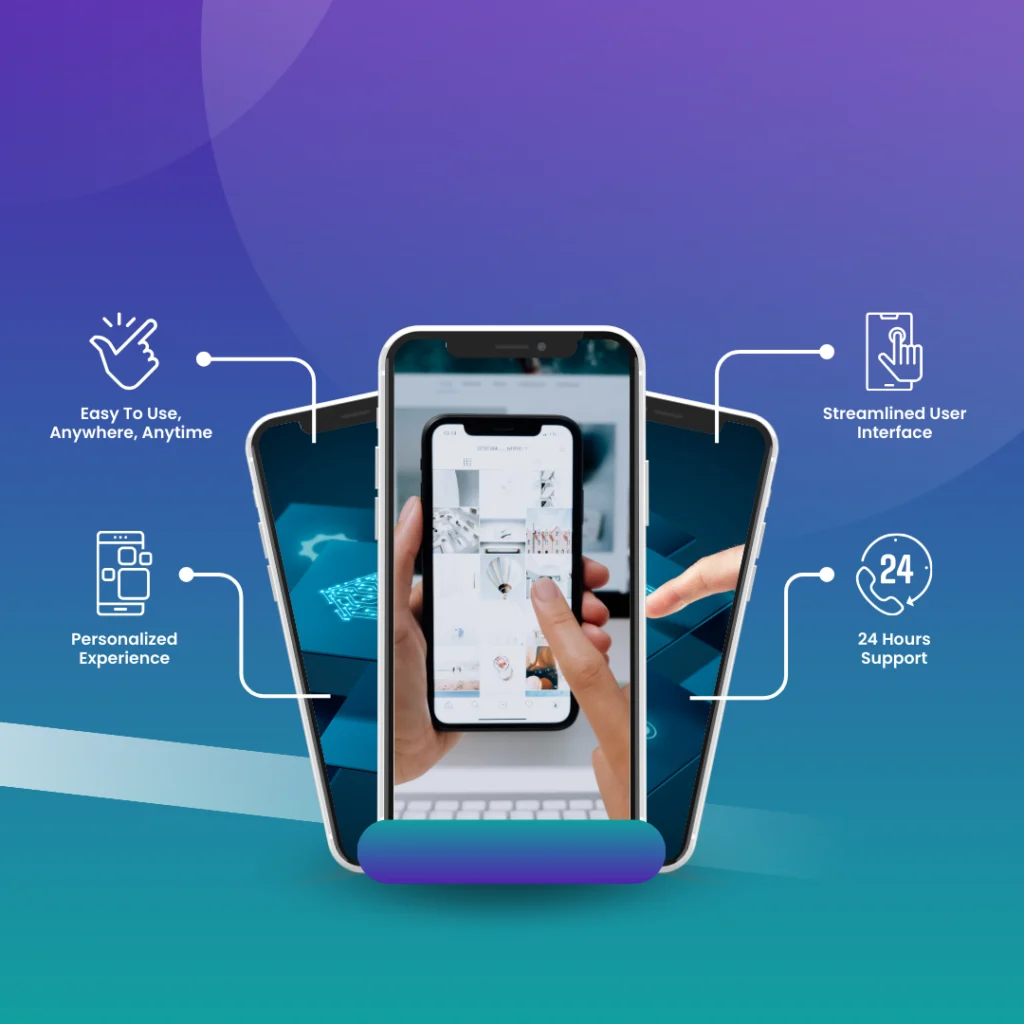Innovative mobile app development tailored to your needs. Elevate user experience and stay ahead in the digital landscape.
Brand Dezire’s mobile app strategy revolves around user-centric design, seamless experiences, and market research. With a focus on intuitive interfaces, platform compatibility across iOS and Android, and agile development, the app ensures flexibility and responsiveness. Prioritizing security, continuous user feedback, and marketing integration contribute to a dynamic approach. Regular updates and community-building initiatives further enhance user satisfaction, positioning Brand Dezire as a formidable player in the competitive mobile app market.
Mobile app development offers scalability, accessibility, and enhanced user engagement, driving business growth and fostering customer loyalty.
Mobile App development provides a platform for businesses and services to reach a wider audience. Mobile apps enable users to access information, products, and services anytime, anywhere, as long as they have a compatible device. This increased accessibility can lead to higher user engagement and customer satisfaction.
Well-designed apps offer a user-friendly interface and a seamless experience. Developers can tailor the user interface to match the preferences and behaviours of the target audience, resulting in a more intuitive and enjoyable experience. This can contribute to higher retention rates and positive reviews.
Mobile apps can take advantage of the features and capabilities of the devices they run on. This includes utilizing features such as GPS, camera, accelerometer, and push notifications. By integrating these functionalities, developers can create more interactive and feature-rich applications that cater to specific user needs.
Many apps are designed to work even when the device is not connected to the internet. This offline functionality allows users to access certain features or content without requiring a constant internet connection. This can be especially beneficial in areas with intermittent connectivity or for users who want to conserve data usage.

Customized mobile app development tailors software solutions to specific business needs. This bespoke approach ensures that the application aligns precisely with the client’s requirements, enhancing efficiency and user experience. By incorporating bespoke features and design elements, custom apps provide a unique solution that addresses distinct challenges, promoting increased productivity and a competitive edge in the market. This tailored approach also allows for scalability and adaptability as business needs evolve, ensuring a more sustainable and effective long-term solution.
Mobile app development is the process of designing and building software applications for mobile devices, typically smartphones and tablets. It involves both the front-end (user interface and user experience) and back-end (server-side) development.
The major platforms for mobile app development include iOS (Apple’s operating system) and Android (Google’s operating system). Developers often use different programming languages and development environments for each platform.
For iOS app development, Swift and Objective-C are commonly used. For Android app development, Java and Kotlin are widely used. Cross-platform frameworks like Flutter and React Native allow developers to use a single codebase for both iOS and Android.
Native app development involves creating separate apps for each platform (iOS and Android) using platform-specific languages and tools. Cross-platform development uses frameworks that allow developers to write code once and deploy it on multiple platforms.
User experience is critical in mobile app development. A positive UX ensures that the app is easy to use, intuitive, and meets the needs of the target audience. A well-designed UX can significantly impact user satisfaction and app success.
The app development lifecycle typically includes planning, design, development, testing, deployment, and maintenance phases. Each phase is crucial for ensuring the quality and success of the mobile app.
Mobile apps undergo various types of testing, including functional testing, usability testing, performance testing, security testing, and compatibility testing across different devices and operating system versions.
App stores, such as the Apple App Store and Google Play Store, are platforms where users can discover, download, and install mobile apps. Developers submit their apps to these stores for distribution to a global audience.
Developers can monetize their apps through various models, including paid downloads, in-app purchases, subscriptions, freemium models, and advertising. The choice of monetization strategy depends on the nature of the app and the target audience.
Trends in mobile app development include the rise of 5G technology, increased use of artificial intelligence and machine learning, the growth of augmented reality (AR) and virtual reality (VR) apps, and a focus on enhancing app security and privacy.